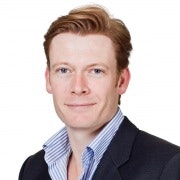China's subsidy economy is Australia's opportunity
There's an industrial park 125 kilometres (or a 25 minute train ride) from Shanghai that encapsulates how the Chinese plan to change the world.
The government has allocated 288 square kilometres of land for high-tech local and international companies at the Sozhou Industrial Park in its bid to create "Asia's Silicon Valley”. That title may be a tad optimistic, but the intention is clear.
Look beyond the rhetoric coming out of the US election about how China is unfairly supporting its manufacturing firms. Here you realise that China is subsidising its way out of low tech manufacturing and into whatever industry it designates as meeting its long-term ambitions of becoming an integral part of world markets. At the Sozhou Industrial Park, the Chinese government is effectively creating an entire hi-tech industry from scratch, subsidising the creation of global industries that it hopes will rival the likes of Google and Cisco. To do that it wants to replicate the kind of education/industry collaboration that Stanford (home of Google, Cisco and many others) has fostered.
To do that it needs cutting edge research facilities. Fortunately for Australia, the first foreign university to be granted a licence to operate in a decade is Monash University, which Wednesday unveiled a new facility that will train 1500 masters and PhD students in advanced IT, transport engineering and industrial design.
Edward Byrne, Vice Chancellor of Monash University, has travelled to China 10 times in the past year. He is convinced that success in China will be a "game changer" for his desire to elevate Monash into the top 30 research institutions in the world. Byrne was formerly the head of bio sciences at University College London and says that for any university to make it as a centre of excellence, you have to play the numbers game. Europe has a pool of one billion people that feeds the best and the brightest into British universities.
Australia does not have that population, so Byrne believes we must turn to China, and quickly. It's estimated that China is churning out around 50,000 PhDs a year and while questions hang over the quality of degree, that is an incredible amount of brainpower that is going to be turned to some of the world's big problems.
Byrne, who sits on the board of Cochlear, is hoping that this collaboration will similarly spin off a world beating company. The future for Monash in China is not more undergrads, he says, but high value-add research initiatives in what he calls the ‘centre of the world'. There's big money in getting research and development right, especially when partnering with global companies.
He says that the world leader in this is the University of Michigan in Ann Arbor, which derives $US800 million in research income a year. At this industrial park, which has almost 100 Fortune 500 companies as members, Monash could have the opportunity to significantly boost the $350 million it makes yearly from research. Consider that as China subsidises its way to hi-tech success, something that goes hand-in-hand with its need to solve the incredible challenges it faces in terms of urbanisation, energy consumption, pollution, transportation and the like there is enormous possibilities for academia.
The anti-Chinese rhetoric emerging from the US crystallises the frustration among Americans who have effectively transferred western know-how and western methods to Chinese companies – know-how that is now being used against them.
To adopt such protectionist sentiment, Byrne says, would pose a much greater risk to Australia than to China. Instead, he believes, Australians must come here to realise what opportunities exist. He says that the "scales will fall from your eyes” once you see the challenges that need to be solved. Of course, solving problems is what medical researchers most love to do, but once solved, the benefits can flow for decades.
Jackson Hewett is travelling on the Victorian Trade Mission with the support of the Victorian Employer's Chamber of Commerce and Industry.













